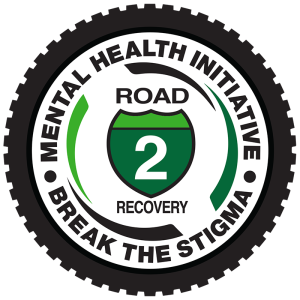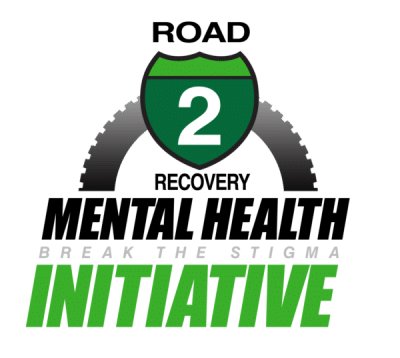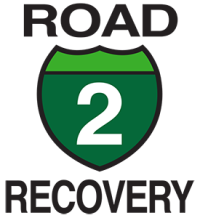
Break the Stigma
Monthly Support Group

Upcoming: TBD
Guest Speaker: TBD
Meeting Topic: TBD
Start Time: TBD PST

Previous Support Meetings
Watch previous R2R Monthly Support Zoom – Breaking the Stigma Meetings
Brandon Hartranft
November 2023
Carter Biese
October 2023
Allie Spurgeon – Trigger Warning
September 2023
Brian Deegan
June 2023
Dean Wilson
March 2023
Austin Forkner
February 2023

Inside the Helmet Series
Trailer Video
Overview
Rick Johnson
Episode 3
David Pingree
Episode 2
Jeff Emig
Episode 1
National Suicide Prevention Lifeline
Dial 988 or 1-800-273-8255
Dail 988 from any phone to speak with a trained crisis counselor. If you or someone you know is in crisis — whether they are considering suicide or not, please call the toll-free< Lifeline at 800-273-8255 speak with a trained crisis counselor 24/7.
How To Attend





Mental Health and Wellness
Definition
Mental health includes our emotional, psychological, and social well-being. It affects how we think, feel, and act. It also helps determine how we handle stress, relate to others, and make choices. Mental health is important at every stage of life, from childhood and adolescence through adulthood. Over the course of your life, if you experience mental health problems, your thinking, mood, and behavior could be affected.
Many factors contribute to mental health problems, including:
The first thing you must know is that you are not alone. Mental health conditions are far more common than you think, mainly because people don’t like to, or are scared to, talk about them. However:
None of this means that you’re broken or that you, or your family, did something “wrong.” Mental illness is no one’s fault. And for many people, recovery — including meaningful roles in social life, school and work — is possible, especially when you start treatment early and play a strong role in your own recovery process.
Mental health is “a state of successful performance or mental function, resulting in productive activities, fulfilling relationships with other people, and the ability to adapt to change and cope with adversity.”, According to the World Health Organization.
Human well-being must be at the heart of the elite athletic performance. Athletes should feel empowered and nurtured both physically and mentally. Mental health and physical health are two halves of a whole, and care for both must be seen as a priority.
Where To Get Help
National Hotline Numbers & Website Resource Links
National Suicide Prevention Lifeline
Dial 988 or 1-800-273-8255
Dial 988 from any phone to speak with a trained crisis counselor. If you or someone you know is in crisis — whether they are considering suicide or not, please call the toll-free Lifeline at 800-273-8255 speak with a trained crisis counselor 24/7.
NAMI Crisis Text Line
Text NAMI to 741-741
Connect with a trained crisis counselor to receive free, 24/7 crisis support via text message.
NAMI Hotline
1-800-950-6264
The National Alliance on Mental Illness HelpLine volunteers are working to offer support and provide practical next steps.
Hours Available:
Monday – Friday,
10 a.m.–8 p.m., ET.
1-800-950-6264.
Loma Linda University Behavioral Medicine Center (BMC)
Substance Use Recovery and Wellness Program
909-443-22374
Are you or a loved one suffering from substance abuse? Recovery is possible, and our team at the Behavioral Medicine Center (BMC) is here to offer hope and help for achieving sobriety.
Our Substance Use Recovery and Wellness program treats adults suffering from alcoholism and drug addiction. While the decision to enter into treatment can be difficult, maintaining sobriety is an important step toward a much better quality of life.
Mental Health and Behavioral Conditions
Anxiety Disorders
Everyone can experience anxiety, but when symptoms are overwhelming and constant — often impacting everyday living — it may be an anxiety disorder.
Attention Deficit Hyperactivity Disorder (ADHD)
ADHD is a developmental disorder defined by inattention (trouble staying on task, listening); disorganization (losing materials); and hyperactivity-impulsivity (fidgeting, difficulty staying seated or waiting). An estimated 8.8% of children aged 4-17 have ADHD. While ADHD is usually diagnosed in childhood, it does not only affect children. An estimated 4.4% of adults aged 18-44 have ADHD.
Bipolar Disorder
Bipolar disorder causes dramatic shifts in a person’s mood, energy and ability to think clearly. Individuals with this disorder experience extreme high and low moods, known as mania and depression. Some people can be symptom-free for many years between episodes.
Borderline Personality Disorder
BPD is characterized by a pattern of instability in emotions (commonly referred to as dysregulation), interpersonal relationships, and self-image. Individuals with BPD can also struggle with impulsivity and self-harm.
Depression
Depression involves recurrent, severe periods of clear-cut changes in mood, thought processes and motivation lasting for a minimum of two weeks. Changes in thought processes typically include negative thoughts and hopelessness. Depression also involves affects sleep/energy, appetite or weight.
Dissociative Disorders
Dissociative disorders, which are frequently associated with trauma, disrupt every area of psychological functioning: consciousness, memory, identity, emotion, motor control and behavior.
Eating Disorders
Eating disorders are characterized by the intentional changing of food consumption to the point where physical health or social behaviors are affected.
Obsessive-Compulsive Disorder
OCD involves persistent, intrusive thoughts (obsessions) and repetitive behaviors that a person feels driven to perform (compulsions) in response to those thoughts.
Posttraumatic Stress Disorder
PTSD involves a set of physiological and psychological responses. It can occur in people who have experienced or witnessed a traumatic event such as a natural disaster, a serious accident, a terrorist act, rape, war/combat or something similar.
Psychosis
Psychosis is characterized as disruptions to a person’s thoughts and perceptions that make it difficult for them to recognize what is real and what isn’t.
Schizoaffective Disorder
Schizoaffective disorder involves symptoms of schizophrenia, such as hallucinations or delusions, and symptoms of a mood disorder, such as depressive or manic episodes.
Schizophrenia
Schizophrenia interferes with a person’s ability to think clearly, manage emotions, make decisions and relate to others. It also causes people to lose touch with reality, often in the form of hallucinations and delusions.


